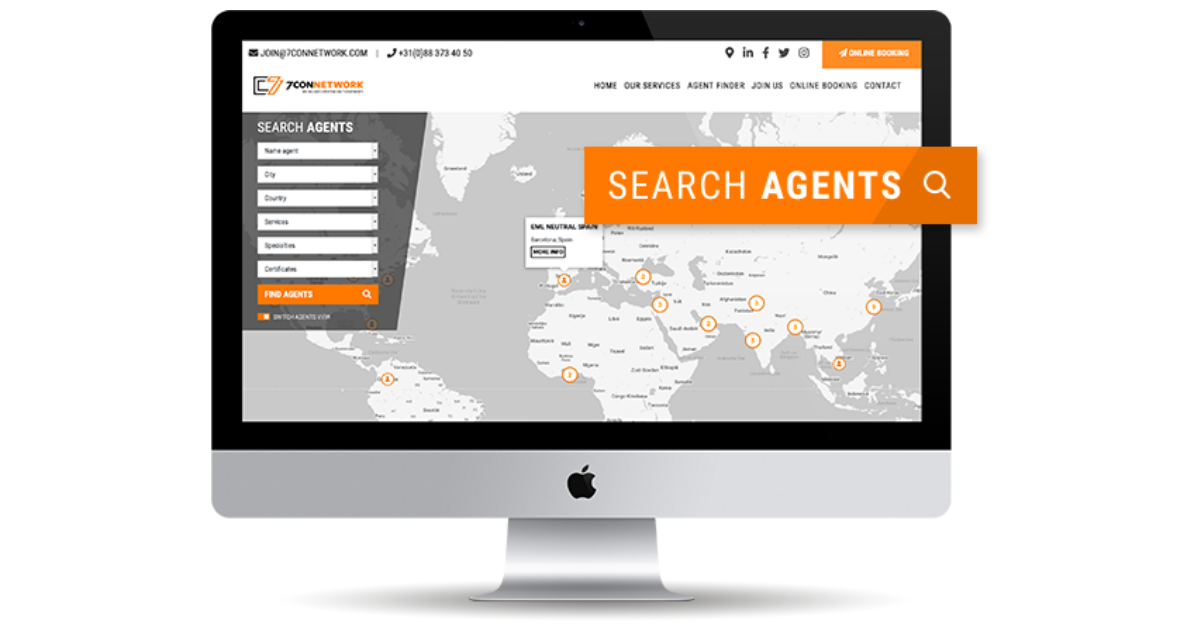There are several important pieces of information that non-EU freight forwarders need to be aware of to ensure a smooth and compliant process. In this blog, we will explore key points that non-EU freight forwarders should know when delivering e-commerce cargo within the EU.
Consideration for non-EU freight forwarders
A non-EU freight forwarder needs to understand the key points discussed above to ensure a smooth and compliant process when delivering e-commerce cargo within the EU. Clear communication with customs authorities, logistics professionals, and other intermediaries involved in the shipment, knowledge about customs regulations, conformity with product regulations, an understanding of VAT, and De Minimis threshold, among others, is essential to achieve timely and efficient delivery.

Complying with these points can be challenging but collaborating with customs brokers and legal experts knowledgeable in EU customs and logistics regulations can facilitate compliance with the respective country's rules and regulations. Ultimately, non-EU freight forwarders that take into account all these factors are more likely to succeed in delivering e-commerce cargo within the EU. Let's dive into more detail on speicifc considerations.
Customs Procedures and Documentation
The first and foremost point that a non-EU freight forwarder should know is to understand the customs regulations and procedures for importing goods into the EU. This includes understanding the customs documentation required for the goods being shipped, such as commercial invoices, packing lists, certificates of origin, and relevant product-specific documentation. Accurate and complete customs documentation is essential for smooth and efficient shipment processing, and it helps to avoid delays at the border.
Furthermore, there's an Import One-Stop Shop (IOSS) scheme that non-EU freight forwarders should be familiar with. The IOSS scheme is a simplified customs declaration scheme for low-value shipments. The IOSS allows for the VAT to be paid upfront when goods are imported, reducing the VAT administration burden for e-commerce sellers. Therefore, it's essential to understand the IOSS scheme to ensure that customs procedures happen timely and efficiently.
Value Added Tax (VAT) and E-commerce Rules
Understanding VAT rules for goods imported into the EU is crucial. Different VAT rates apply in different EU member states. Moreover, if the goods are sold to consumers (B2C), non-EU freight forwarders should be aware of the One-Stop Shop (OSS) scheme. The OSS scheme allows businesses to declare and pay VAT for all EU sales through a single portal. This simplifies the VAT calculation and payment process for cross-border e-commerce transactions and complies with the VAT obligations.
Additionally, e-commerce platforms and marketplaces might have specific VAT obligations that non-EU freight forwarders should be aware of. Therefore, understanding the VAT rules and complying with the respective VAT obligations is critical for non-EU freight forwarders to ensure smooth and efficient delivery.
De Minimis Value
De Minimis value is the threshold value for goods imported into the EU, below which they are exempt from customs duties and VAT. Non-EU freight forwarders should know the De Minimis value for each EU member state, as it varies from country to country. Obtaining accurate knowledge about the De Minimis value for the respective countries can help non-EU freight forwarders plan and price shipping estimates.
Product Regulations and Safety Standards
It's essential to ensure that the imported goods comply with EU product regulations and safety standards. Conformity assessments or CE marking might be required, depending on the nature of the products. Before importing goods into the EU, non-EU freight forwarders should check the goods' conformity with EU product regulations and safety standards. This ensures compliance with the rules and regulations regarding product quality standards.
Customs Duties and Tariffs, Declarations, and Entry Processing
Even though customs duties are generally not applicable for goods within the EU, some exceptions might exist for specific goods. Non-EU freight forwarders should be aware of these exceptions and any changes in regulations. They should have a clear understanding of customs duties and tariffs applicable to the respective goods being shipped.

Depending on the customs procedures of the specific EU member state, non-EU freight forwarders might need to submit import declarations electronically or through other means. Understanding the process and timing involved in these customs declarations and entry processing is crucial to ensure smooth and efficient delivery.
Risk Management and Compliance
Implementing robust risk management practices is essential to ensure compliance with customs, VAT, and regulatory requirements. Implementing such practices ahead of the shipment can help identify risks related to shipping the goods. Screening for prohibited or restricted goods can also help minimize the risks for non-EU freight forwarders.
How to find the right experts to help with your shipments
To ensure accuracy and compliance, it's strongly recommended to work closely with local customs brokers, legal experts, and logistics professionals who are knowledgeable about specific regulations in each EU member state. Customs regulations can vary between countries, so thorough research and preparation are essential for delivering e-commerce cargo within the EU. With the 7ConNetwork Agent Finder, you can search for a qualified expert to help you with your e-commerce shipments into the EU.
